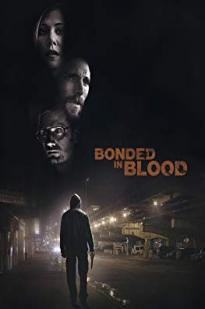Released in August 1984, Zavechtchanie professora Do’ouelia (Doctor Dowel’s Testament, Leonid Menaker) is an adaptation of a short story by Aleksandr Beliaev published in 1926 under the title Golova Professora Do’ouelia (Head of Professor Dowel). The potential impact of the title was therefore reduced here, unlike the Soviet version of Orca. But moreover, the film seems more than ever to meet the codes of the genre:

Professor Dowel is illustrated by experiments on dead animals, in order to bring them back to life. Following his death in a misguided car accident, Robert Corn, the new laboratory chief, was recruited by a corporation that worked for the military. However, it turns out that Dowel survived – in a very particular way, it is true: his head is kept alive with a serum injected regularly by Corn. Dowel survives because he continues his experiments, in particular on a female creature, Eve. During an apotheosis scene, he presents his creation to an audience of dumbfounded scientists, reveals his secret, accuses “those who seek to use scientific discoveries for a military purpose”, and asks to be disconnected. You can go to the best-putlocker.com there.
The Testament is like a real tribute to the traditional subjects of the horror film:
The myth of the demiurge popularized by Mary Shelley is exploited in an altered form (“the animated head”), imagined in its time by Lovecraft in Herbert West, Re-Animator (1922). The theme was taken up on the big screen in 1959 in The Brain that wouldn’t die (The Brain Who Didn’t Want to Die, Joseph Green, United States) and it will be taken up in 1985 in Re-Animator (Stuart Gordon, United States). States), the adaptation of Lovecraft. Nor was the use of political themes in the horror film new: in the 1950s, many American “monster movies” used politicians and the military as protagonists. In the years 1970-1980, the American director John Carpenter is particularly illustrated in this area. The fact remains that the political aspects (the action is happening nowadays) and the location of the film (the United States) have imposed themselves in the context of Andropov’s strategy.
The second example of this production of “circumstances” came out in September 1985, six months after Gorbachev came to power: the decrees on counter-propaganda were in effect applied at least until 1986, as evidenced by many anti-American films released at that time. Den ‘Gneva, (Day of anger, Sulambek Mamilov, 1985), adapted from a short story by Sever Gansovski, tells the story of a renowned journalist, Donald Bettley, who decides to embark on an ambitious project: a documentary on a region far from the civilized world, where no one has dared to venture so far. Guided by Miller, a man who seems to harbor many secrets, Bettley discovers a land populated by farmers frightened by the regular visits of half-human, half-animal creatures, the atarks. These nocturnal visits often end with the disappearance of men and women who never return. Atarks, as Bettley discovers, are the fruit of experimentation by a scientist, Fiedler. Mortally wounded in his laboratory, Bettley entrusts Miller with the task of revealing this terrible secret to the civilized world. As in the previous film, the film ends with an amphitheater confrontation, where the protagonists and representatives of the scientific community are gathered. Fiedler manages to defend himself by claiming to work for the good of humanity. In a dramatic move, Miller kills him and tears off the mask from his atark face.

